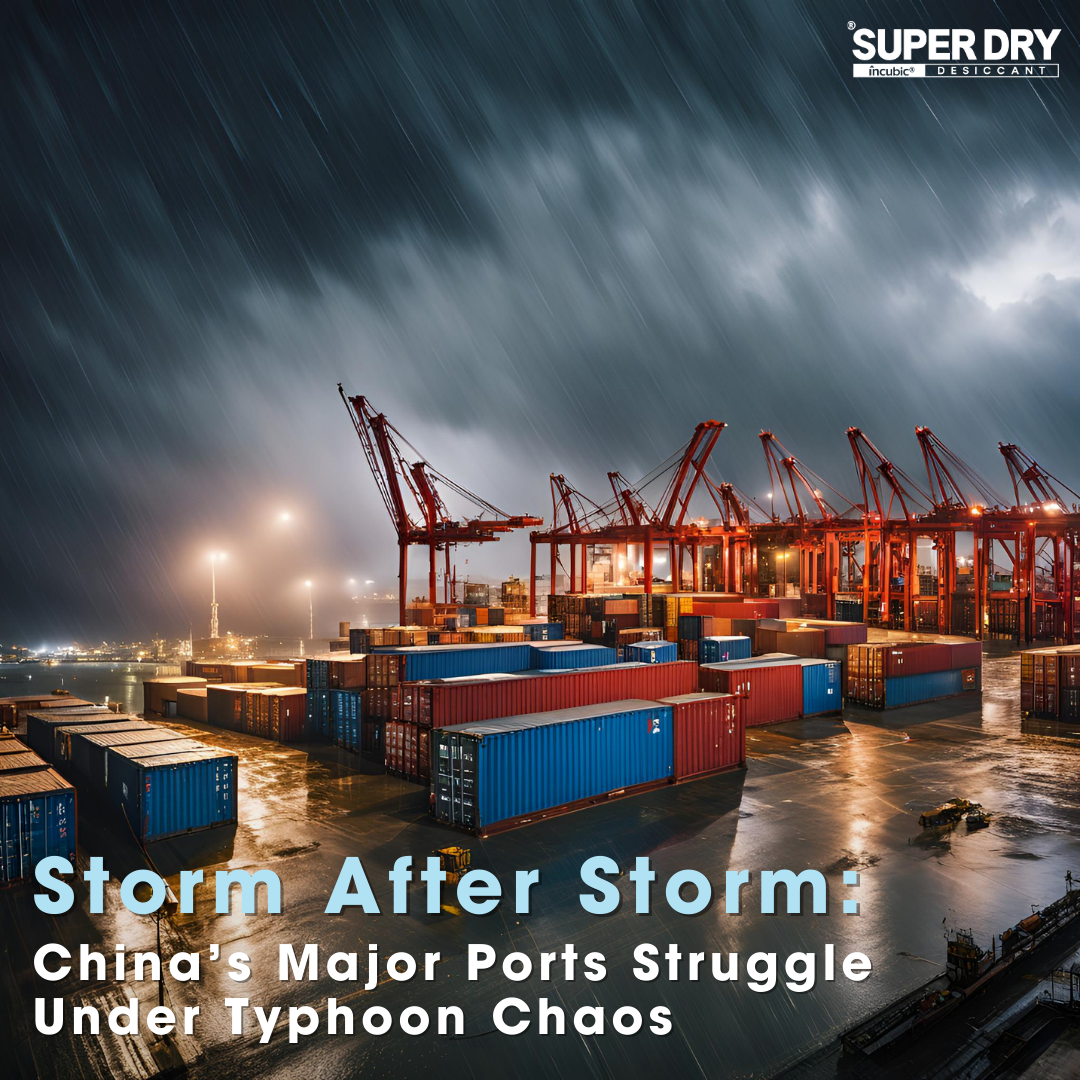Storm After Storm: China’s Major Ports Struggle Under Typhoon Chaos

China’s ports are grappling with significant disruptions following Typhoon Bebinca, and further challenges lie ahead as Typhoon Pulasan threatens to make landfall.
As the port backlog grows, Hapag-Lloyd reports that ships are now facing delays of 36-60 hours to berth in Shanghai, while Ningbo faces waiting times of 24-48 hours. This bottleneck is expected to worsen as Typhoon Pulasan approaches, potentially exacerbating the already strained situation.
China is bracing for yet another tropical storm just days after Typhoon Bebinca caused widespread damage along the eastern coast on September 16. Typhoon Pulasan, expected to make landfall late Thursday, September 18 which is forecasted to strike the coastal regions such as Shanghai, Zhejiang, and southern Jiangsu.
According to S&P Global, container loading and discharge operations were suspended from Sunday at key areas in Shanghai’s Yangshan and Waigang due to Typhoon Bebinca, while Ningbo Port halted container operations on Saturday. Truck drivers from outside Shanghai were temporarily accommodated over the weekend to manage the logistics disruptions, reported Xinhua News.
The China Meteorological Administration has issued warnings for heavy rainfall and strong winds, adding further strain to the shipping industry, potentially adding more disruption to the ports operational.
Ningbo and Shanghai Ports Brace for Impact
Ningbo Port, one of China’s busiest, handles a significant portion of the country’s exports and imports.
As the port backlog grows, Hapag-Lloyd reports that ships are now facing delays of 36-60 hours to berth in Shanghai, while Ningbo faces waiting times of 24-48 hours. This bottleneck is expected to worsen as Typhoon Pulasan approaches, potentially exacerbating the already strained situation.
The potential impact of Typhoon Pulasan on port operations in Zhejiang province raises concerns about additional delays and logistical bottlenecks, compounding the already strained situation caused by Typhoon Bebinca earlier this weekly. This will likely exacerbate current backlogs and delay the processing of shipments further.
Global Supply Chains Face Prolonged Disruptions
These consecutive storms are creating significant disruptions across global supply chains, especially for industries reliant on just-in-time logistics. With Ningbo and Shanghai ports serving as major export hubs, any slowdown will ripple across international markets, potentially leading to product shortages, increased shipping costs, and delayed deliveries for industries ranging from automotive to consumer electronics.
The timing is particularly critical as businesses prepare for the holiday season, and many are already working to restock inventories. Extended shipping delays also pose a risk to moisture-sensitive goods like electronics, textiles, and perishable agricultural products, which could face quality degradation if left stranded in transit.
Solution for Moisture Protection During Delays
With shipping delays likely to be happened further due to back-to-back storms, businesses face increased risks of moisture-related damage to goods held up in transit. Super Dry’s advanced desiccant technology offers a critical solution for protecting cargo that might exposed to fluctuating humidity levels during these prolonged delays. By effectively controlling moisture within shipping containers, Super Dry ensures that valuable cargo remains protected, even under severe conditions.
Stay prepared, stay protected.
Contact our team today to learn how we can help protect your goods from moisture damage.
